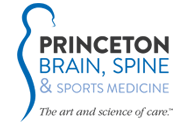Whiplash
Traumatic Neck Injury
NJ & PA's Personal Injury Specialists
Whiplash is a rear-impact injury commonly occurring in motor vehicle accidents. Caused by acceleration-deceleration forces acting on a stationary, unrestrained neck, whiplash happens when an individual’s head snaps rapidly forward and back. Whiplash injury refers to damage caused to the bony structures and soft tissue of the neck and upper back, and the condition may become a chronic disorder when it is not diagnosed and properly treated.
While whiplash is not life-threatening, it may lead to disabling pain and range-of-motion problems. Many whiplash-causing vehicular accidents are the reason for litigation and personal injury cases. When needed, Princeton Brain, Spine & Sports neurosurgeons and sports medicine specialists provide expert personal injury and workers’ compensation services.
Whiplash Symptoms
During whiplash, an individual’s lower neck (cervical) vertebrae are forced into a hyperextended (backward) position while the upper cervical vertebrae are forced into hyperflexion (forward positioning). The result is a neck abnormality caused by damage to the ligaments, muscles and facet joints.
Whiplash symptoms include, but are not limited to:
- Stiff, painful neck
- Shoulder & arm pain or weakness
- Headaches
- Dizziness & balance problems
- Jaw pain & TMJ
- Visual & hearing disturbances
- Back pain
Severe, chronic whiplash disorders may also lead to insomnia, depression, anxiety, post-traumatic stress disorder (PTSD) or long-term drug dependency.
Whiplash Diagnosis & Treatment
Whiplash is diagnosed with careful examination followed by imaging (CT scan, x-ray or MRI). It was previously thought that immobilization was best for whiplash, but excessive rest and bracing is now believed to lead to increased stiffness, pain and muscle atrophy.
Princeton Brain, Spine & Sports Medicine clinicians educate patients about pain management and whiplash recovery and recommend therapies that may include:
- Non-steroidal anti-inflammatory medications
- Range-of-motion (ROM) & strength exercises
- Physical therapy
- Acupuncture
- Occupational therapy
- Mental health services for depression or anxiety
To prevent whiplash, the PBSSM team recommends always wearing seatbelts and adjusting vehicle headrests to properly support the cervical spine.
Request Treatment for Whiplash or Personal Injury
In most cases, whiplash heals on its own—but you may be faced with a personal injury case after your motor vehicle accident. The PBSSM team provides expert first and second opinions for personal injury and vehicle-related workers’ compensation cases, as well as surgical consults for neurological injuries. Learn more about personal injury services or contact our team to schedule a consultation.
Request an Appointment
Submit an appointment request on our patient portal or contact our New Jersey and Pennsylvania campuses to speak with a patient advocate.
